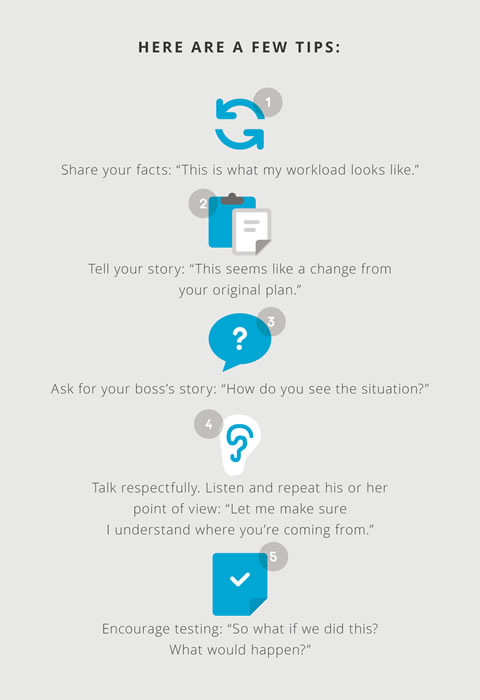
It’s easy to become self-focused when we are trying to improve ourselves. We make daily lists of what we need to accomplish, including stretch goals we want to work on and new skills we want to develop.
But if you really want to progress in your career, the best thing you can do is to help your employer succeed. It’s not always easy to do this, but here are a few tips that will help you, including some solutions to problems you may face.
The first rule of thumb is to do your job well and try to exceed expectations. Anticipate problems and solve them without being asked. Job experts will tell you that it’s not working overtime that gets you noticed; it’s working smart and exceeding expectations.

But what if your boss is always changing expectations?
That’s another problem altogether, and addressing it begins with communication. Before beginning a task or project, get a clear description of expectations. Write them down, and check your daily activities against them.
What happens if your boss is constantly pulling you off task?
This is common in many organizations. Bosses and managers have a lot on their plates, and sometimes they lose track of what the priorities are or what they have already assigned you to do. But reminding them in the face of a deadline is not the best way to do it. In fact, doing so may cause a blowup.
This is a big problem in the workplace. Luckily there are four guys— Kerry Patterson, Joseph Grenny, Ron McMillan, and Al Switzler—who have spent the last 40 years studying organizations, personalities, and the behavioral science of organizational change. In their book Crucial Conversations, they explain how to communicate productively during stressful or even heated times.

Want to be a hero at work? Learn these basic skills.
If you think your boss is going against his or her plan or derailing yours, sit down one-on-one with your boss when you’re not in the heat of the moment. Apologize for taking a bit of his or her time, and reiterate what the two of you are trying to accomplish. This is called establishing a mutual purpose. Outline it briefly, and then respectfully ask if he or she sees it the way you do, and ask how this new task fits in. For example, you have 47 shipments to get out by Friday and you have now been asked to install a new piece of equipment. The mutual purpose is to keep the customers happy. Ask which of these assignments is most likely to keep the customers happy. Be willing to problem-solve if both needs are of equal importance. Don’t be argumentative, and don’t become silently frustrated. Remember, it’s the relationship that matters most. If the first mutual purpose has changed, be willing to come up with a new one. Getting the new equipment installed might be the best way to keep customers happy, or perhaps bringing in a temp crew to help with deliveries will allow you to install the equipment. The conversation is not about winning or losing but about finding a solution.

By becoming an ally with your boss when there is a crisis, you build trust. He or she knows you can be counted on during difficult situations. Your personal skills improve, and so does your situation at work.
Elder David E. Sorensen of the Seventy taught that the phrase “agree with thine adversary quickly” means to

Work situations can often be stressful and may try our patience. Being agreeable while offering help or suggestions when they are needed is a valuable skill. It requires a lot of humility and a touch of assertiveness. It might even require you to let your boss take credit for the solution!
